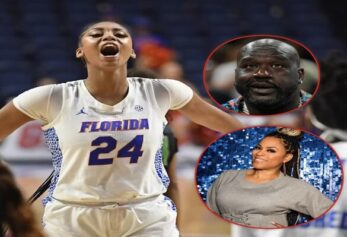The NCAA is making another big change that will come into effect immediately starting in 2023. They have voted to remove standardized testing requirements for incoming freshman at the Division I and Division II level. The decision came during the NCAA Convention that took place last month in San Antonio, Texas.
Division I schools have waived the standardized test requirements since 2020 due to COVID-19 and the impact it has had on students not being able to take the test. This started as a temporary waiver but now it has turned permanent.
Division III schools don’t offer athletic scholarships and have their own rules to govern academic eligibility. International student-athletes that plan to attend a Division III school will now have to register with NCAA Eligibility Center for an amateurism certification.
What’s Behind the Decision?
The NCAA Standardized Test Task Force is a specialized group that was tasked with reviewing initial eligibility requirements as part of the NCAA eight point plan to advance racial equality.
“As some NCAA member schools shift away from requiring standardized test scores for general student admissions, the Council felt it was appropriate to reflect those admission standards in eligibility requirements for incoming freshman student-athletes,” Lynda Tealer, executive associate athletics director at Florida and chair of the Division I Council, said at a January meeting of the council.
Standardized tests will remain optional for NCAA student-athletes who initially enroll during the 2021-22 or 2022-23 academic years.
More ➡️ https://t.co/u9dXDvkxiZ pic.twitter.com/G8HtLoViCQ
— NABC (@NABC1927) April 14, 2021
The other academic policies are still in place. Students will still need to have at least a 2.3 GPA for Division I schools, 2.2 GPA for Division II schools, have at least 16 NCAA approved course that they have taken, and provide proof of high school graduation.
Students that are going to universities that plan on coupling their athletic scholarship with an academic scholarship still may need to take the SAT. MIT issued a statement in March 2022 that it would require standardized testing for all future applicants. California has completely done away with the standardized testing. Harvard and Princeton have temporarily suspended it until 2026.
Other Key Changes
Coaching
The NCAA has extended coaching limits by eliminating voluntary coach across Division I and instead include those coaches in a new limit for countable coaches in the following sports: Baseball, softball, ice hockey, men’s basketball, and women’s basketball.
Baseball, softball, and ice hockey have their coaching staffs increased by four in each sport. Men’s and women’s basketball have their coaching staffs increased by two.
The NCAA council also voted to have Football Bowl Division and Football Championship Subdivision graduate assistant positions redefined to graduate student coaches that can only serve three years maximum in that role.
These rules will take effect on July 1.
Transfer Waiver Guidelines
Students transferring for a second time in their collegiate career will now be required to meet certain criteria before being granted a waiver.
The student must meet one of the following: demonstrated a physical injury or illness or mental health issue and exigent circumstances that clearly necessitate a student-athlete’s immediate departure such as physical abuse, assault, or sexual abuse. Anything falling outside of these guidelines will be directed to the Transfer Advisory Group.
The council agreed that athletic reasons such as lack of playing time and academic preferences would not be valid reasons for a second transfer. They also noted that if a student-athlete is a part of a college program that has ended, then they could enter the transfer portal at any time instead of being required to only transfer during the allotted window.



